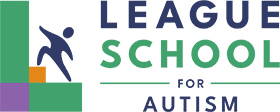Student Support Services
Specialized Instruction
League School offers a multidisciplinary, collaborative team of specialists who provide a wide array of services to meet the individual support needs of each student. Services are based on a student’s Individual Education Program (IEP) goals as well as skills the student and their families have identified as areas for growth.
Each classroom is assigned a specific team of specialists, who collaborate with the teaching staff, the parents, and the student to develop a service plan.
In most cases, our specialists integrate services into the classroom and/or work environment to help ensure the skills are functional and generalizable to the real world. Support services include:
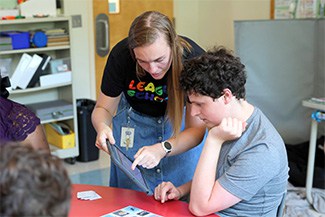
Speech-Language Therapy
Our speech-language pathologists (SLPs) support students to be competent, confident, and active participants in social interactions.
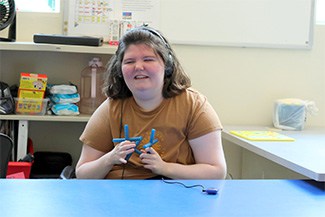
Occupational Therapy
Occupational therapists (OTs) utilize a holistic approach to intervention by supporting the student to engage in meaningful daily activities.
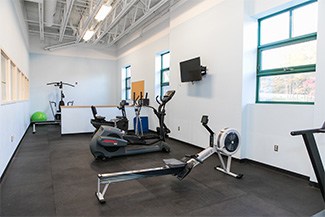
Physical Therapy
For students who require physical therapy through their IEP or a doctor’s order, League School maintains contracts with local agencies to provide services to the student.
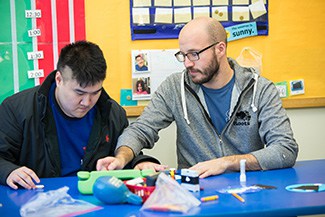
Behavioral Department
Each team at League School includes a board-certified behavior analyst (BCBA) and a behavior technician. The goals of the behavior department are to work with the multidisciplinary team to develop and monitor programming for any students whose emotional or physical dysregulation creates obstacles to educational progress or participation.
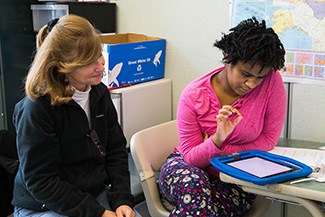
Clinical Services
Many students at League School are supported clinically in a number of areas beyond Autism that impact their daily lives, social relationships, and their ability to be available for learning.
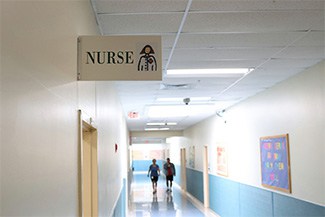
Nursing Services
The nursing department at League School collaborates with the student’s multidisciplinary team to provide daily care for our students, including maintaining physical health, medication management, and medical assessment.
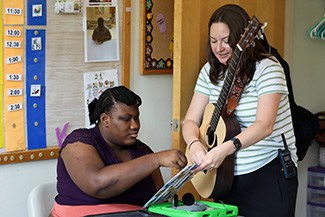
Additional Education Services
League School offers a variety of classes that give students the opportunity for physical and creative outlets. These include art and music classes, culinary arts, and adapted physical education (APE).
FOR MORE INFORMATION
For more information about our support services, please reach out to League Admissions Coordinator Lynne Goyuk, at admissions@leagueschool.com or 508-850-3900 ext. 171.
